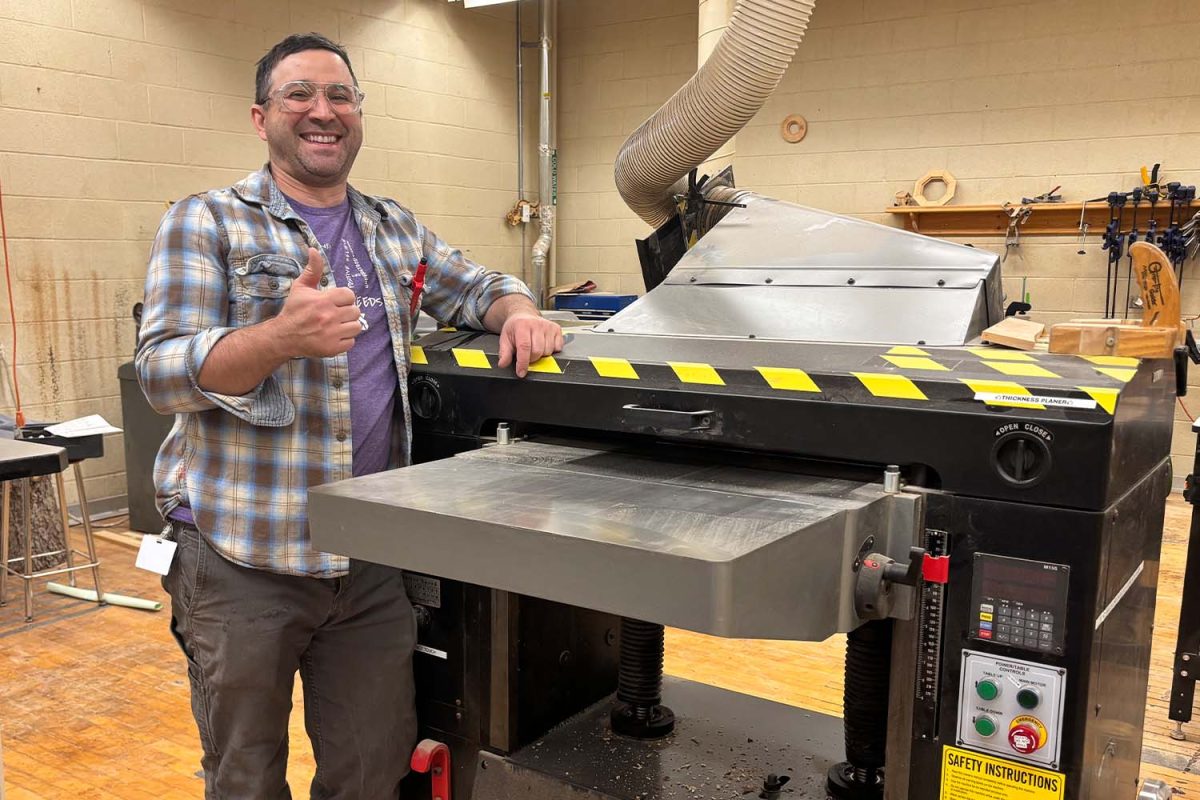Students taking this year’s Advanced Placement classes did everything from growing trees to analyzing academic journals, according to several graduating seniors who shared their experiences.
Because AP classes often include a more rigorous curriculum, students feel they can explore their interests on a deeper level and get increased support from their teachers.
However, they also expressed feeling like they missed exploring material that was outside the scope of the AP curriculum.
Several seniors said they also gained useful life skills in various AP classes, including better organizational and presentational skills as well as a better understanding of certain concepts, like in statistics and in STEM.
“I think all students should try an AP or honors class in an area of their interest and really stretch themselves if they can if they’re planning on going to college at any point,” Assistant Principal and former AP coordinator Mrs. Andrea LaPira said.
She added that choosing not to take an AP would not stop a student from attending college.
According to US News National Rankings, 63% percent of Strath Haven students participate in the AP program. The College Board’s list of most popular AP courses, AP Psychology, AP Chemistry, AP Biology, and AP Computer Science Principles A, are all offered as options at Haven.
“Bio was awesome,” senior Michelle Ding said. “You grow plants, you make trees, you tie-dye shirts, I presented about coral reefs. It teaches you how to be organized, how to study, [and] reading comprehension.”
Similar to Ding, other seniors benefitted from taking AP Biology, including senior Hannah Prokup.
“I just loved all the projects she [Ms. Shepard] had us do,” Prokup said. “The way she created the curriculum, it allowed me to learn but also have fun with it. Whereas some other AP classes, I’ve definitely been a lot more stressed and not been able to have fun and learn.”
Senior Audrey Stevens shares the sentiment about negative experiences when taking certain AP classes with more limits on content exploration.
“I really don’t like when the class turns into its end goal is just to get a five on the test,” Stevens said. “It minimizes whatever cool things you were going to learn into just what are the test strategies, what’s the College Board looking for on the FRQ [free response questions].”
This importance of the testing in AP curriculums often bothers AP students, including Stevens and Ding. However, senior Daniel Saveliev mentioned that the exam-focused element of the class is, in some ways, beneficial to a student’s learning and was a plus for him.
“Honestly, I feel like a) the teachers care about you getting a good AP score, so they’re generally more involved and care a lot more about you understanding something,” Saveliev said. “And b), they also understand that it’s generally going to be a harder class, so they’ll also typically do some stuff to offset that and make it more fun.”
Many students had positive experiences in their AP courses compared to their ‘normal’ classes, including Prokup.
“You get a more hands-on experience, and you get to learn things more in depth,” Prokup said. “If I’m in a normal class, I’ll learn the surface level of a certain topic, and if I’m really interested in it, I’ll want to dive deeper into it, but obviously you don’t do that with some honors classes.”
Ding, however, noted a positive aspect of honors classes over AP classes.
“Something that is helpful about not taking AP classes is that you can go on helpful tangents a lot more, so you can explore topics of your own interests that aren’t curriculum-based,” Ding said. “It’s not something you really get to do with AP classes.”
One big difference between an honors or CP test and an AP exam is the cost. In the 2024-2025 school year, regular AP exams cost $98 per exam, with an exception for AP Capstone Seminar and AP Research at $146.
Another difference is time.
“I would say that taking an AP test is a lot more of just being ‘Do you know this stuff?’ [but] it’s also, ‘Do you know this stuff and can you keep that mental dexterity going for multiple hours?’” Saveliev said.
While there are ways that AP exams can be helpful, such as preparing a student for standardized testing or covering a lot of topics of interest to study, there are also aspects of the exams that are similar to other testing run by the College Board.
“They’re usually not a reflection of how you learn course material, they are a reflection of how well you know how to speak the College Board language,” Ding said. “I think AP tests, they’re still just a test but in this really weird niche language, so like taking the SATs, you’ll learn how to take the SATs, not how to be a good test taker. You’ve learned like, ‘this is what the College Board wants, and I’m gonna do it like they want.’”
When talking about the difficulty level of any AP exam, Prokup believes genuine interest in whatever topic you are being tested on will decrease the level of difficulty. For Stevens, the difficulty of the exam differentiates by which classes she feels are most important for her college career.
“I think it really depends if you’re trying to use that credit or not,” Stevens said. “Last year, I really wanted to be able to test out of calc in college, so I put a lot of work into studying for that test, and I found that kind of stressful.”
Stevens also mentioned that, overall, she considered her regular exams more stressful because they affected her GPA.
College credits are often in mind when students think of taking AP courses, but Ding said that she learned many useful life skills, such as presentational skills learning to write papers quickly through AP Seminar.
“Even if it’s a class that you know your college doesn’t really accept the credit for, if you think it’s going to be a good class for your future skills, I’d say take that class,” Ding said.
The College Board offers an AP Credit Policy Search on their website for reference on specific AP and college credit alignment.
On the topic of college credits and APs, LaPira said that many students are affected by the somewhat competitive atmosphere at Strath Haven.
“I think students feel pressure that they have to take certain AP courses in order to get into college,” LaPira said. “That’s not true.”
For this same reason, when giving advice to future AP students Stevens encourages adhering to your own interests.
“See if you’re interested in the class itself and do your research, like, what’s the reputation? Is it going to be something that you’re going to enjoy? And I would try not to let the fact that the College Board runs it dominate your learning,” Stevens said.
With several current AP students having taken classes they disliked, Prokup emphasizes the importance of taking classes you like over classes purely for the AP distinction, especially year-long classes.
“Honestly, just do what you’re interested in, because if you take an AP that you’re not interested in, not only is it going to be harder, but you’re not going to like it,” Prokup said.
While the AP program does not exactly replicate college classes, Saveliev points out that one of its benefits is to simulate the content and choices you may have in college classes.
“It exposes you to new interests and shows you what it’s going to look like at the beginning of college and to sort of get an idea of what that might look like in terms of difficulty,” Saveliev said. “I’d recommend taking a look.”














